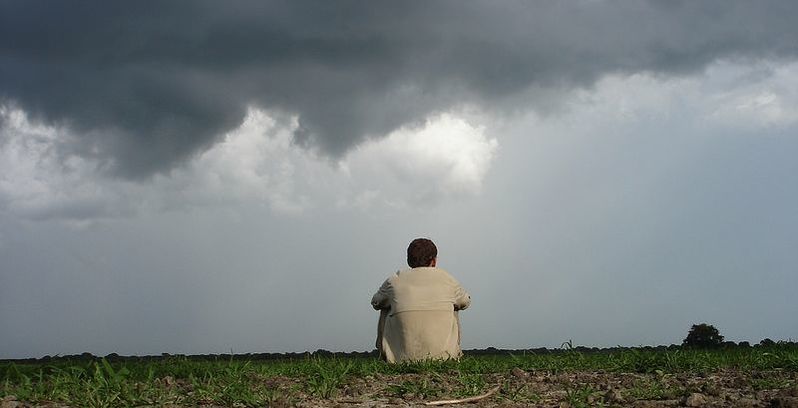|
Occasional mishaps were a part of our yearly trip to New Hampshire as we trailered our boat. One particular trip, when my children were young, stands out in my memory. I was driving the car along a section of the Massachusetts Interstate that had a deep ravine filled with boulders and pine trees along its side. A large tractor trailer sped by, pushing air as it did so. The air mass picked up and moved the trailer with such force that the steering wheel popped out of my hands. Down the ravine we went with me raising my hands and crying out to God. Miraculously, the car and trailer were turned around and landed on the grass strip parallel to the road with only a dent in the bumper of the car and a flat tire on the trailer. To this day I cannot explain why we did not all die in this accident other than the hand of God reaching down to save us. I believe that he responded to my cry.
It should be natural for those who know the Lord to cry out to Him when we are in distress and in need of help. Yet, we are frequently timid in our prayers and may not follow the Biblical example of crying out to the Lord. The prophet Jeremiah was encouraged to do just that. "Call to me and I will answer you and tell you great and unsearchable things you do not know." (Jeremiah 33:3) We can read over 100 verses in the Bible where God's people cry out to Him for different reasons and He responds. The Israelites were instructed to give thanks to God with a firstfruits offering and a declaration to Him of what He had done for them. "But the Egyptians mistreated us and made us suffer, putting us to hard labor. Then we cried out to the Lord, the God of our fathers, and the Lord heard our voice and saw our misery, toil and oppression. So the Lord brought us out of Egypt with a mighty hand and an outstretched arm…” (Deuteronomy 26:5-8) Because of their sin, the Israelites frequently found themselves under the oppression of their enemies. When they could no longer tolerate the cruel regimes to which they were subject, "...they cried out to the Lord, and He raised up for them a deliverer..." (Judges 3:9) Jabez was distressed over the name his mother gave him. It means "I gave birth to him in pain." 1 Chronicles 4:10 tells us, "Jabez cried out to the God of Israel, 'Oh that you would bless me and enlarge my territory! Let your hand be with me, and keep me from harm so that I will be free from pain. And God granted his request." 1 Chronicles 5:20 makes a direct correlation between crying out to God and His response in one of the battles the Israelites had with their enemies. "They were helped in fighting them, and God delivered the Hagrites and all their allies into their hands because they cried out to Him during the battle. He answered their prayers, because they trusted Him." I see here that trust in God is demonstrated as we verbalize our need. The Psalmist recounts the faithfulness of God in response to the cries of His people. "They cried out to you and were saved; in you they trusted and were not disappointed." (Psalm 22:5) When we cry out to God He hears us and responds with answers we may not see directly. An example of this is seen from the results of Stephen's cries to the Lord. "While they were stoning him, Stephen prayed, 'Lord Jesus, receive my spirit.' Then he fell on his knees and cried out, 'Lord, do not hold this sin against them’...And Saul was their giving approval to his death." (Acts 7:59-60) A while later, Saul met the Lord on the road to Damascus and became a fervent follower of Christ, writing most of the New Testament. The Lord hears our cries. He is drawn to the sound of our voices when we cry to Him with all our hearts. It is confirmed in Scripture: "The Lord is near to all who call on Him; to all who call on Him in truth. He fulfills the desires of those who fear Him; He hears their cry and saves them." (Psalm 145:18-19) Use your voices, dear ones. Let the Lord hear the cry of your hearts. He will respond according to His perfect will for us. |
Joan E. MathiasCategories
All
Archives
July 2024
|

 RSS Feed
RSS Feed